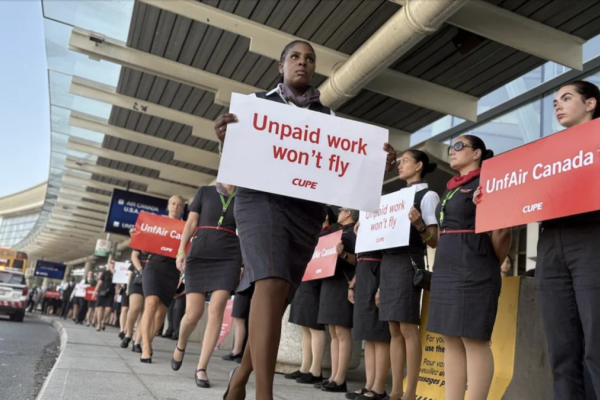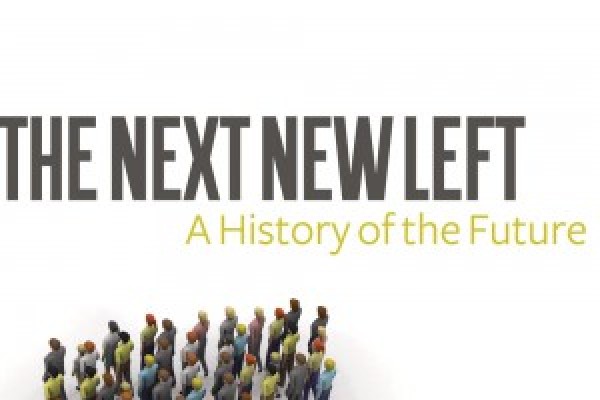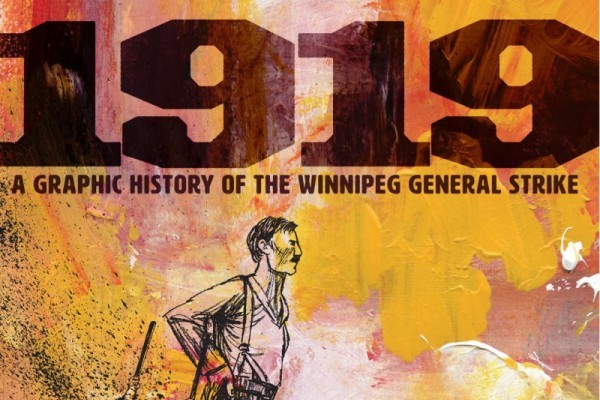After big election promises, Trudeau Liberals sell a future without job security for young Canadians
The Liberals need to be clear with Canadians where their long term outlook lies

Earlier this week, federal Liberal Finance Minister Bill Morneau suggested there is no solution to precarious employment, arguing that we must prepare young workers for an economy in which they “move from job to job to job.” While Morneau held up the Canada Pension Plan expansion as part of mitigating a future without employer benefits, his general tone was that Canadians must accept these economic transformations as inevitable.
In this sense, the Liberal plan is not about questioning trends towards social and economic injustice, but rather ensuring that future generations are content to live on an insecure basis, even as Canada continues to see growth in aggregate prosperity.
And while some might praise Morneau for his candid remarks, they are stark in their contrast to the Liberal’s 2015 electoral messaging, which could be characterized by its boundless optimism. Tellingly, one of Trudeau’s sayings was that “in Canada, better is always possible.”
The Liberals also made numerous work-related promises to young Canadians, and while the CBC has found that the Liberals have fallen short of fulfilling them, their 2015 platform takes a rosy tone. It suggests that the Liberals will rise above the Harper years by addressing both the quality and availability of jobs for young people. Succinctly, the tagline was that it “is time to invest in young Canadians—to help them get the work experience they will need to start their careers and contribute fully to our economy.”
But this outlook conflicts with Morneau’s comments, because his prediction of a “churning” job market, with a lack of benefits and stability, isn’t what most Canadians understand as a career, which is seen as distinct from the category of jobs that are increasingly-prevalent in the gig economy.
And beyond Morneau’s recent remarks, the Liberals have demonstrated a general unwillingness to improve working conditions. This isn’t to say that they haven’t made changes—like the repealing of some anti-labour legislation—but they have been anything but progressive on matters of public-sector bargaining, scab labour and a federal minimum wage.
Public Service Alliance of Canada President Robyn Benson has grown disenchanted with the Liberal approach in bargaining, which she argues is following the Harper mandate on questions around wages and sick leave. As a result, the PSAC has launched a campaign calling upon Trudeau to live up to his promise of real change in relation to the Conservatives.
Additionally, many unions felt betrayed by the Liberals voting with the Conservatives to oppose an NDP-backed private member’s bill (C-234), which would have banned the use of scab labour in federally-regulated industries.
Finally, Trudeau has rejected the idea of a $15 federal minimum wage, arguing that it is less important to put “a little more money in peoples’ pockets” than “making sure that they have the conditions to be able to succeed.” This sounds reasonably progressive on the surface, but one might read the subtext that while opportunities should exist for low-income Canadians, the general concept of poverty wages are valid.
Ultimately, one can see in the Justin Trudeau government burgeoning similarities to his father’s approach to workers’ expectations. Pierre Trudeau initially rode to power on the optimistic (but purposely vague) concept of the “Just Society.” Yet over the course of his tenure, he would argue that the biggest barrier to a prosperous society was workers’ unreasonable expectation of higher wages and better public services. For Canadian job creators to thrive, workers needed to worker harder and accept less.
Likewise, the comments from Morneau demonstrate a departure from the 2015 campaign’s image of hope, offering in lieu one that seeks to prime young people to accept an unjust future as part of a natural—and unquestionable—progression.
The Liberals have often argued that their central goal is to offer “real help to Canada’s middle class and all those working hard to join it.” But what has defined the contemporary concept of Canada’s middle class is incompatible with the economy Morneau sees on the horizon. This image of the middle class has been based on jobs that offer benefits, security, training, advancement and a feeling of ownership. Few “gig economy” jobs fit this profile.
The Liberals need to be clear with Canadians where their long term outlook lies. Is it with the election 2015 idea that we can offer a decent life for young workers, or is it with the idea that job security is a luxury we can no longer afford? After a year of observation, my suspicion is that the latter is their genuine belief, while the former was a tactical choice to win votes.
With this in mind, it is clearer than ever that solutions to intergenerational inequality and the future of good jobs won’t be offered under faux-progressive Liberal governments, but won through democratic socialist struggle within the electoral system, unions, and communities across the country.
Christo Aivalis, a member of the CD web committee, is an adjunct professor of history at Queen’s University. His dissertation examined Pierre Trudeau’s relationship with organized labour and the CCF-NDP, and has been accepted for publication with UBC Press. His work has appeared in the Canadian Historical Review, Labour/le Travail, Our Times Magazine, Ricochet and Rankandfile.ca. He has also served as a contributor to the Canadian Press, Toronto Star, CTV and CBC. His current project is a biography of Canadian labour leader A.R. Mosher.










